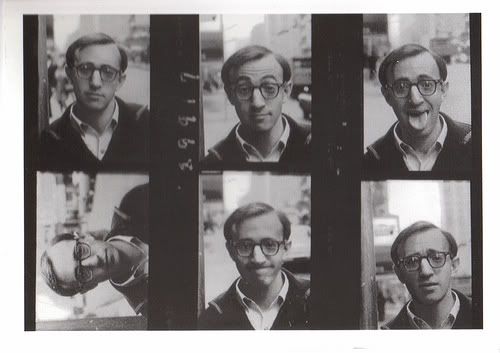"To Room With Love" is not one movie, but four. Three are perfect, and the last remains perfectly entertaining, if less moving. What surprised me most is the youth of the cast (which stood in stark contrast to the devoted Woody Allen fans in the audience, who waved goodbye to geriatric at least a decade before).
I don't normally do this, but for the sake of coherence, I'll review each storyline separately.
THE BEST ONE:
Woody Allen deserves a prize for creating a movie about the lives of 20-somethings that's not only hysterical, but relatable. I'm not sure exactly why, but the immediate post-college years seem to inspire only the worst type of film: navel-gazing affairs that treat ambition like sickness, or movies about people losing track of everything only to "find themselves" at the end.
Those films (usually terrible romantic comedies) ignore a simple fact: 20 somethings are actually adults, not oversized children let loose on an unsuspecting world. You offer to cook dinner for your friends, because it feels like the adult thing to do, even when the only things you know how to make are brownies, and sometimes not even that. But you know what? We have a hell of a lot of fun trying.
Pretending to be adult also involves being a little pretentious (part of youth is failing to understand that constantly showing off your knowledge doesn't actually prove your intelligence). Allen finds a brilliant conceit to allow us to both fall in love with these unctious people and mock them from afar.
Ellen Page probably has the most difficult role, playing the flutterby with the most superficial personality (Allen clearly chose her for her incredible Diane Keaton impression). But we also have to fall in love with her. And we do.
I won't say anything to spoil the central conceit of this segment, but let's just say that cell phones are important. And like me, you may wonder why all the women are wearing button down shirts (it's a hint!) Also, Jesse Eisenberg, if you're reading this, marry me.
EQUALLY GOOD BUT MINUS EISENBERG:
The second story sets up a perfect counterpoint to the first. Two newlyweds from a small village have just moved to Rome and they're as young as the previous group, and even less experienced. They're not playing at adulthood, they have to grow up.
The casting director's found a real star in Alessandra Mastronardi, who finds herself lost within her first 5 minutes in Rome. Blah blah, magic city cakes, she breaks down by a film shooting featuring her most beloved Italian movie star. Her hijinks take twists and turns that are both hilarious and awesome (and make my shriveled feminist heart scream out in glee).
Meanwhile, poor Antonio finds himself accidentally embroiled with a prostitute (played by Penelope Cruz, who steals every scene she's in. Seriously Hollywood, stop casting her in shitty movies. Or maybe do, so she can keep being awesome in foreign films).
The ending of their story works for me, but I'm sure that it won't for some. I look forward to debating it with you in the comments.
THE FUNNIEST SEGMENT
It should come as no surprise that the funniest (and in many ways the objectively strongest) segment is the one starring the Woodster himself. I can't even think of a way to write about it without spoiling its increasingly hilarious turns, but lets just say that we wade knee deep into absurdist comedy (and half of the audience fell out of their seats at the climax of this segment).
Also notable: Alison Pill follows up her impressive turn in Midnight in Paris with even more charm.
THE UGLY ONE
The final segment, featuring Roberto Benigni, deserves neither an image nor a lengthy review. I won't say it was boring the first time around, but in future viewings, I shall dub these scenes "BATHROOM BREAK".
OVERALL
It's nice to know that after all these years Woody Allen still has the desire to experiment with forms in filmmaking. Through To Rome In Love, he plays with time and space in ways that are totally unique. It's often said that his film locations are characters in and of themselves, but I'm pretty glad that's not true here.
In fact, there's an astonishing lack of what I'd describe as Woody Allen "tropes", like scenes in museums. The tone is bittersweet, which he's never quite done before. These are human stories, and Rome merely provides a platform to launch these stories, which are as much about Italians as they are about the Americans who get lost in their country.
Where Midnight in Paris succeeded as a total wish fulfilment fantasy (you may recall that I dubbed it Paris Porn), To Rome With Love works better as a cohesive film.













